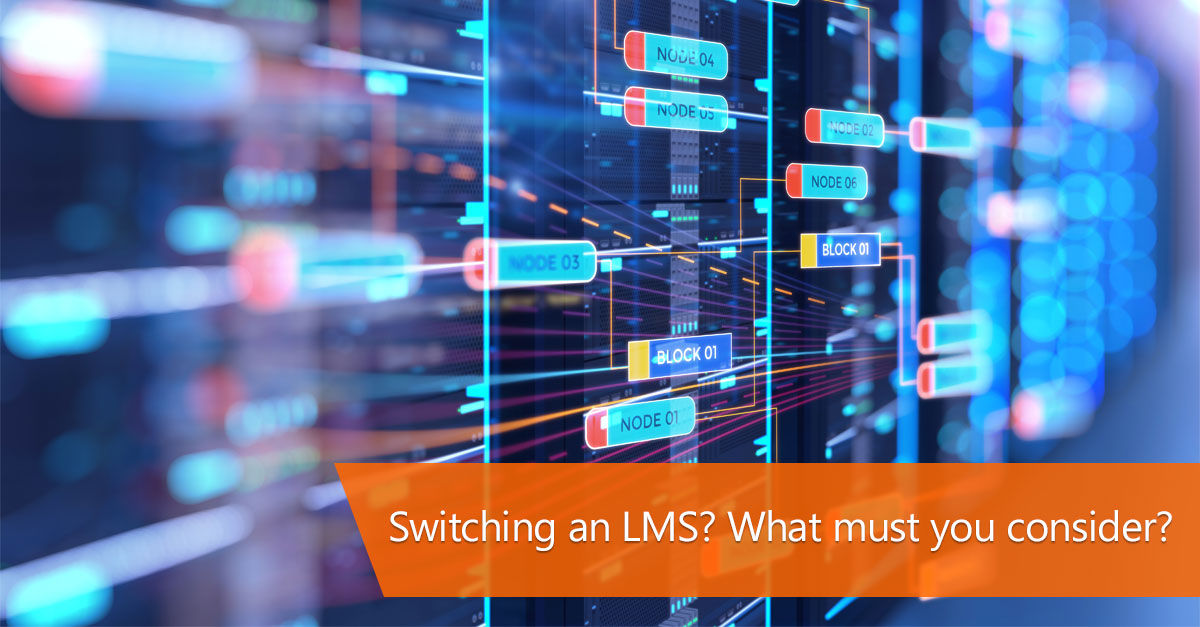Switching an LMS can be confusing, especially when migrating from a dysfunctional clunky LMS to a modern platform. When planning a switch, some commonly asked questions are:
- How will I migrate my existing data?
- What kind of third-party integrations must I look for?
- What features must I look for in the new system?
It’s questions like these that make switching an LMS a tough decision.
In this blog, we break down the process of a smooth switch from one system to another, and the things to remember when selecting your replacement LMS.
On this Page
Here are things to consider when switching an LMS:
Know Your Current LMS
Usually, the decision to switch your LMS is a result of shortcomings and difficulties in operating the current system. And, the ideal method of selecting an LMS should start with listing these shortcomings, followed by identifying the good or likeable aspects of the platform. By listing these dislikes and preferences, you are left with a list of features, based on which the next LMS can be shortlisted. However, it is important to identify features based on actual needs and not wants. By selecting an LMS with extra features, you are paying for a platform that could be complicated. Moreover, you end up paying for a set of features that you may never use.
Switch to a Future-Proofed LMS
A big reason to switch your LMS is so that you can upgrade to a better platform. However, what is a better platform? The answer is—an LMS with future-proofed features that stays relevant in the oncoming periods. Basically, features that stay relevant for a period of 5 – 10 years. Some examples of future-proofed features are:
- Mobile-first design: An LMS with a mobile-first design.
- Native applications: An LMS with native applications for both iOS and Android.
- Modern UI & UX: A Clutter-free interface and easy navigation options to support futuristic looks and operations.
- Easy integrations: Easily integrate with third-party systems allowing the LMS to communicate freely with these platforms.
Data Migration Plan and Third-Party Integrations
Before switching, an important question to ask is—will the new LMS accept data from the old system easily? how well does the new LMS integrate with third-party software? And, what are the types of integrations available? These are important questions that should help you understand the capabilities of your new LMS.
Ideally, a good LMS allows you to integrate with third-party systems easily. Some of these systems are: CRM, HRMIS, and Webinar tools. Integrations are important because they allow centralised data on employees, departments, and office locations to flow from one platform to another. This saves the time and efforts of manually replicating the same fields of data on all platforms.
Furthermore, integrating legacy courses from the older LMS system to newer platforms is also important. Additionally, SSO (single sign-on) integrations allow users to sign into all internal systems on the organization’s server with one password and user I.D.
Third-party integrations and the ability to upload legacy software makes an LMS a user-friendly platform. Looking for such features in the new LMS is very important.
Support and Training
Operating a new LMS always have a learning curve associated with them. Depending on how complicated your old LMS was and how intuitive the new platform is—the learning curve can be a shorter or a longer one.
When selecting an LMS, look for a vendor who is ready to provide sufficient after sales support. This includes training on how to operate the system and the support to solve any initial issues faced during setup. A good vendor is shortlisted based on two important after sales services provided:
- Customer success teams: A team responsible for ensuring the complete success of your organization as it implements the new LMS. From training to doubt solving, this team ensures your LMS implementation and use is flawless.
- Customer support: A subsection of the customer success team, concerned with providing support, solving issues, and servicing the LMS once purchased.
After sales support is crucial for any organization. Hence, selecting a vendor who cares about your success is important.
There are a lot more factors to consider when switching an LMS and shortlisting a vendor. You can contact us if you’re looking to switch your current LMS by reaching out to us at contact@abaralms.com or click here m and we will help simplify this complex but important task.

